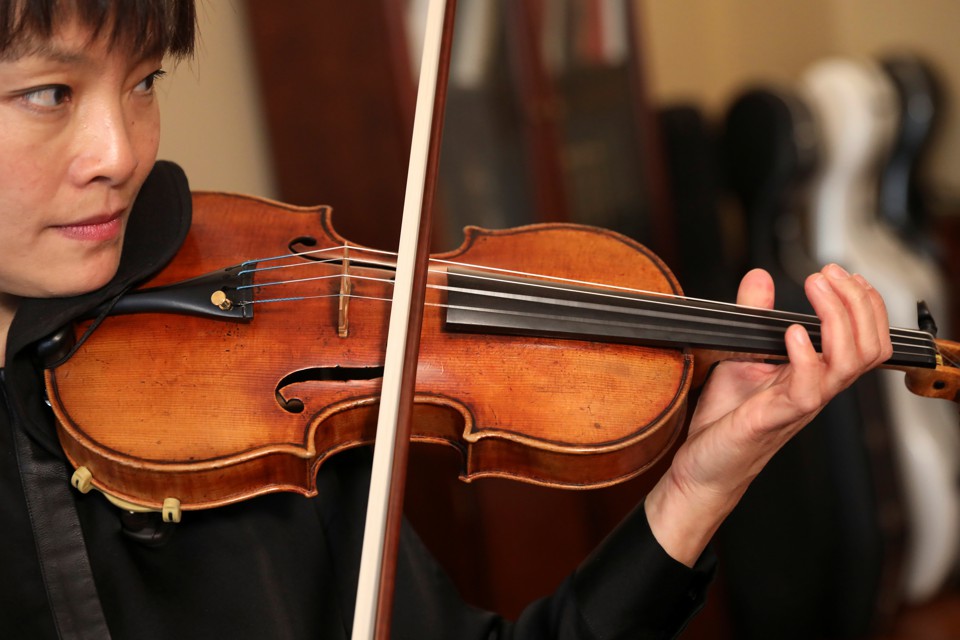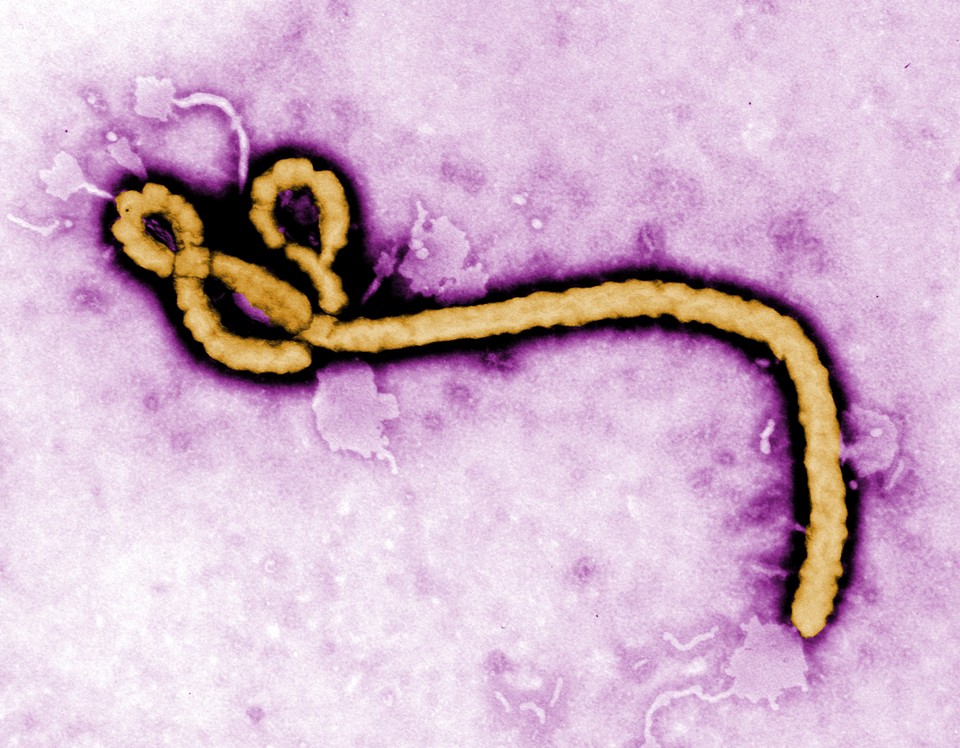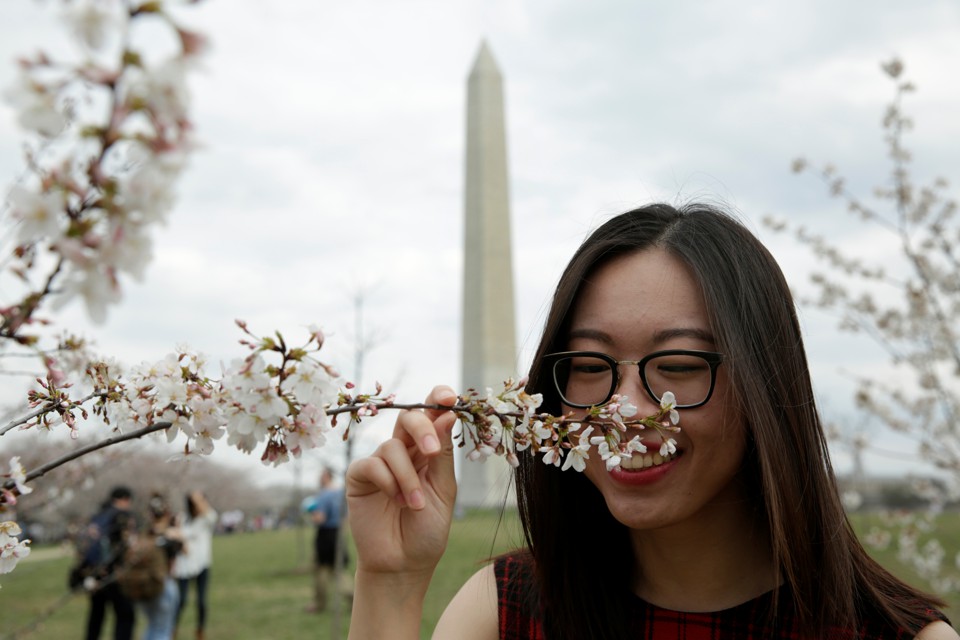The Ed's Up #185

How Beauty Evolves
"The central idea that animates the book is a longstanding one that Prum has rebranded as the “Beauty Happens hypothesis.” It starts with animals developing random preferences—for colors, songs, displays, and more—which they use in choosing their mates. Their offspring inherit not only those sexy traits, but also the preference for them. By choosing what they like, choosers transform both the form and the objects of their desires. Critically, all of this is arbitrary—not adaptive. Songs and ornaments and dances evolve not because they signal good genes but because animals just like them. They’re not objectively informative; they’re subjectively pleasing. Beauty, in other words, just happens." (Image: Wikimedia)

Now That We Can Read Genomes, Can We Write Them?
"Since the Human Genome Project (HGP) was completed in 2003, scientists have sequenced the full genomes of hundreds, perhaps thousands, of species. Octopuses. Barley. Mosquitoes. Birch trees. Reading genomes is now commonplace, but that’s not enough for the group of scientists who gathered at the New York Genome Center on Tuesday. They want to write entire genomes with the same ease, synthesizing them from scratch and implanting them into hollow cells. One team already did this for a tiny bacterium in 2010, creating a synthetic cell called Synthia. But the New York group has set its sights on building the considerably larger genomes of plants, animals, and yes—after a lot of future discussion—humans." (Image: Charles Dharapak)

How a Frog Became the First Mainstream Pregnancy Test
"The African clawed frog, Xenopus laevis, is a palm-sized, greenish-gray animal that hails from the ponds and rivers of sub-Saharan Africa, where it lived for millions of years without anyone injecting it with urine. That unbroken streak changed in the 1930s, thanks to a British scientist with the fantastic name of Lancelot Hogben." (Image: Brian Gratwicke)

Players and Listeners Both Prefer a New Violin to a Stradivarius
"They’re favored by the world’s top players, and they fetch millions at auction—not just because of their antique status and unquestionably fine craftsmanship, but because of their sound. Stradivarius violins supposedly just sound better than their modern counterparts. But try telling that to the listeners at Fritz’s concert hall. Without knowing beforehand which instrument was which, they couldn’t tell the difference between the Strads and the new violins. More than that, they felt that the new violins projected better." (Image: Shannon Stapleton)

Meet Zuul, Destroyer of Shins—a Dinosaur Named After Ghostbusters
"In 2014, a commercial fossil company was digging for tyrannosaur skeletons in a giant Montana quarry when one of its pit-loaders accidentally bumped into the tail of a very different dinosaur. It was an ankylosaur—a low-slung plant-eater with armored plates on its back, and a huge defensive club at the end of its tail. The company was looking for a tyrannosaur, but it ended up finding the thing that smacks tyrannosaurs in the shins." (Image: Danielle Dufault) 
The Confusion Over the New Ebola Outbreak
"Here’s what happened: Since April 22, 2017, there have been nine suspected cases of hemorrhagic fever in the DRC. Three of those people have died, one of whom tested positive for Ebola Zaire—the most dangerous of the virus’s several species. Of the nine cases, five have been tested and only one has been confirmed for Ebola. (It is not clear whether the five tests included all three deaths.) (Image: CDC)
The Myth That Humans Have Poor Smell Is Nonscents
"In a new paper, McGann joins a growing list of scientists who argue that human olfaction is nothing to sniff at. We can follow smell trails. We discriminate between similar odors and detect a wide range of substances, sometimes more sensitively than rodents and dogs can. We live in a rich world of scents and sensibility, where odors deeply influence our emotions and behavior. “I was taught in school that human olfaction isn’t a great sense,” he says. “It’s taught in introductory psychology courses and it’s in the textbooks. But this whole thing is a crazy myth.”" (Image: Yuri Gripas) 
A Not-So-Silent Spring
"Rachel Buxton from Colorado State University and her colleagues have now used their bonanza of data to map the extent to which excessive noise permeates American wilderness. The data revealed that a surprising swathe of protected areas are being carpeted by the clamor of human activity. People have doubled the background noise levels in two-thirds of these supposedly pristine zones, and increased noise by 10 times or more in a fifth of them. “If you could have heard something 100 feet away, now you can only hear it 10 feet away,” Buxton says of the latter." (Image: Ints Kalnins) 
The Making of a Friendly Microbe
"One day in October 2010, a volunteer firefighter named Thomas Fritz cut down a crab apple tree outside his house, and impaled his hand on one of the branches. He dressed the wound, but it still became infected. His doctor gave him a course of antibiotics and sent fluid from the wound to the University of Utah for analysis. The technicians there tested the microbes in the fluid, and found that their DNA was a close match to a bacterium called Sodalis." (Image: USDA)More good reads in science and tech
- The true story behind the research that Trump uses to "prove" voter fraud. This is vital journalism from Maggie Koerth-Baker.
- Liz Neeley and Erin Barker—the leaders of the amazing Story Collider—talk about their approach to science and storytelling.
- Her Husband Was Dying From A Superbug. She Turned To Sewer Viruses Collected By The Navy. By Azeen Ghorayshi
- Here's Sarah Zhang on the surprisingly young age of Homo naledi, and what it means
- Terrestrial is a great new podcast by Ashley Ahearn about how people are coping in a changing world. The first episode is about eco-anxiety—a chronic fear of environmental doom.
- David Roberts explains why the NYT’s decision to hire a climate denier columnist is so troubling.
- Big Pork's interest in organ transplants totally makes sense
- Scientists discover female empowerment among dolphins.
- A parasite living inside the eyeballs of fish controls their behaviour
- Ross Andersen talks about the creation of his masterpiece on mammoths and Pleistocene Park
- Ten ways to listen to trees—by David George Haskell, promoting his amazing new book The Song of Trees.
- All the Animals: a podcast in which two guys read out the names of all the animals.
- “Part science book, part Russian fairy tale, and part spy thriller.” The NYT reviews Lee Dugatkin’s How to Tame a Fox
- You can census albatrosses from space.
- A sociologist studied the women’s, science, and climate marches—here’s what she found.
- Apples are stored in oxygen-free rooms and sometimes people have walked into those and died.
- Why autistic people should be part of autism research.
- Neuroscientist Tom Insel joins a start-up and reflects honestly on the failures of mental health research.
- In a rare spot of good news, Obama’s climate-focused methane rule will stand as law, for now.
More good reads in politics and society
- This Flash Forward episode about the future of policing (Robocops? No cops?) is fascinating—as always.
- Trump fired FBI Director James Comey, who was leading an investigation into Trump’s ties with Russia. James Fallows, who covered Watergate, gives five reasons why the Comey firing is worse. Benjamin Wittes and Susan Hennessey—two people not known for hyperbole—call this the nightmare scenario. David Frum, a Bush speechwriter, says that this is not a drill. “Will the law answer to the president, or the president to the law?” Will Trump face any consequences?
- Trump claimed that Comey told him that he was not under investigation; apparently, that’s not true. He also claimed that this was about Clinton’s emails—an excuse that fell apart in the face of conflicting accounts, not least from Trump himself who later noted that he would have fired Comey anyway, and that the Russian investigation factored into his decision. Leaks from the White House made it clear that Trump was enraged by the investigation. (Here’s Matt Ford on what exactly the “Russia investigation” is, and Julia Ioffe on what happens next with it.) Before the firing, Trump had dinners with Comey where he asked the man to pledge loyalty to him; since the firing, Trump has threatened Comey and—because this couldn’t get any Watergate-ier—hinted at the existence of secret tapes. (Could those be subpoenaed?) While the Republicans have rushed to bend the knee, White House aides are worried that things will spiral out of control. Amid everything, Trump met with the Russian foreign minister and let a random Russian photographer into the White House, and was shocked when the photographer immediately released photos to the Russian press. And finally, Sean Spicer wants you to know that he was hiding among bushes, not in bushes.
- Oh yeah, and last week, the House Republicans pushed through the AHCA bill—a first important step towards repealing the Affordable Care Act, and shoving millions off their insurance. The move has it all, says the Washington Post: Betrayal, carelessness, hypocrisy. There’s a lot of false information about this, so here’s a guide to what the act actually does, and a piece on how it will harm the sick. The move caught progressive activists off-guard, but it could cost the GOP seats in 2018, especially when some are going around saying that people who “lead good lives” don’t need insurance—a policy version of the prosperity gospel.
- Meanwhile, in further autocracy news: Trump “threatens to cancel White House briefings because it is ‘not possible’ for his staff to speak with ‘perfect accuracy’”; Trump hires a DC law firm to go after anyone who suggests he has Russia business ties; a reporter was arrested for shouting questions; and Trump has appointed a man who was sued four times for voter suppression to investigate voter fraud—which is clearly going to be a disaster for voting rights.
- "The web is where the voices of dissidence that have always been watched, can watch and talk back."
- This is beating a dead horse by now, but for everyone who’s still banging on about economic anxiety, here’s yet more evidence showing that “financially troubled voters in the white working class actually preferred Clinton over Trump” and that “cultural anxiety” drove the opposite trend. Along similar lines, the first graph here—about which groups that Democrats and Republicans think are being discmrinated against—is truly shocking
- Trump is set to appoint another climate denier to a top science position, while the EPA dismissed half of its scientific advisory board’s scientific advisers.
- Trump says, "What is digital? It is very complicated, you have to be Einstein to figure it out." Adrienne LaFrance explains digital to him.
- Liberte. Egalite. Fuckyeah.
- A massive ransomware attack disabled the computers of hospitals and several other institutions across Europe. It’s part of a worrying trend.
You can also follow me on Twitter or find my writing at The Atlantic. My New York Times-bestselling book, I Contain Multitudes, is out now. If someone has forwarded this email to you, you can sign up yourself.
And that's it. Thanks for reading.
- Ed